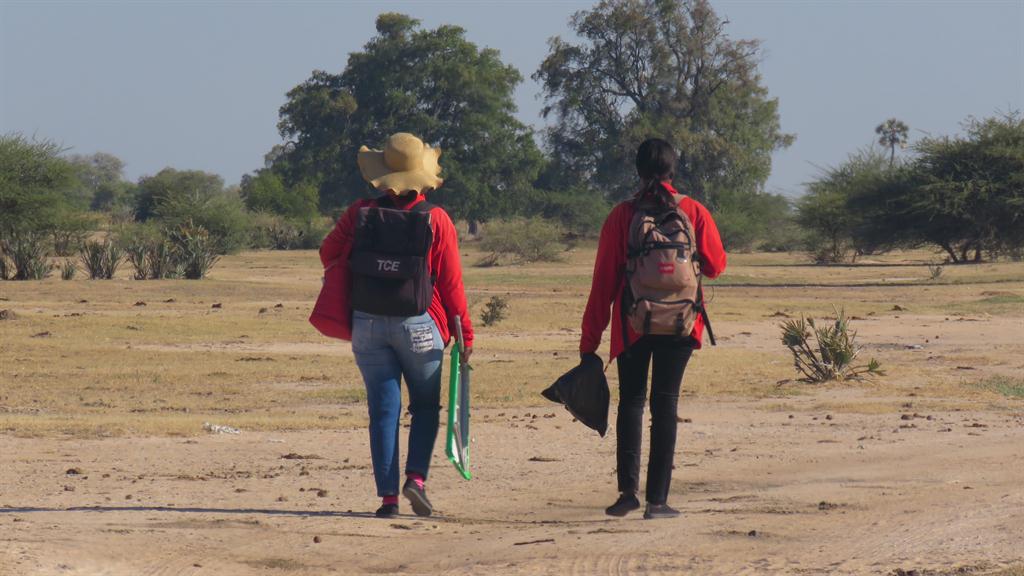15 hepatitis E results pending
The full details of the hepatits E outbreak in Omusati are still unknown as test results are as yet unavailable.
The outbreak of hepatitis E in Omusati Region remains worrisome as 15 individuals showing symptoms remain under medical observation, pending their laboratory test result.
The region has recorded one death among the 11 confirmed hepatitis E cases. There have been 52 suspected cases.
Regional heath director Alfons Amoomo told Namibian Sun that the other confirmed cases reported last month remain stable and the region is busy with efforts to prevent further spreading through public health education.
“Confirmed cases remain stable, except the pregnant woman who passed away on 16 May 2018 at Oshakati Hospital from Okando village in Oshikuku district.
“Currently no case is hospitalised. We have embarked on screening all pregnant women who are in the second and third trimester for HEV [hepatitis E virus]. We are also busy sensitising the community through public health education, distribution of water purification tablets and soap for hand washing,” Amoomo said
He said five cases were confirmed at Tsandi, two at Oshikuku, one at Outapi and three at Okahao. He said 26 individuals tested negative, while 15 results are still pending.
“Hepatitis E is spread by oral-faecal transmission. Therefore, we are encouraging washing of hands with soap under running water after using a toilet, before preparing food, before eating and after changing baby nappies.
“Use water from safe water points, boil or treat all water before drinking, carry and store water in clean, covered containers. Also, use toilets and dispose faeces properly,” he said.
Two of Windhoek's informal settlements, Havana and Goreangab, experienced the same outbreak, first reported on 13 October last year. By March this year, the death toll stood at ten: four men and six maternal deaths.
The health ministry at the time said that roughly three-quarters of those infected were between the ages of 20 and 39. Havana reported 524 cases and Goreangab 242.
Typical signs and symptoms of hepatitis include an initial phase of mild fever, loss of appetite, nausea and vomiting lasting a few days. Some patients may experience abdominal pain, itching (without skin lesions), skin rashes, or joint pain.
To combat the disease, the World Health Organisation recommends the improvement of access to safe water and proper sanitation through different methods, including at-home water purification techniques.
The water quality should be regularly monitored in affected areas. The number of latrines should be increased to address the issue of open defecation. In addition, waste management and overall hygiene practices should be improved.
ILENI NANDJATO
The region has recorded one death among the 11 confirmed hepatitis E cases. There have been 52 suspected cases.
Regional heath director Alfons Amoomo told Namibian Sun that the other confirmed cases reported last month remain stable and the region is busy with efforts to prevent further spreading through public health education.
“Confirmed cases remain stable, except the pregnant woman who passed away on 16 May 2018 at Oshakati Hospital from Okando village in Oshikuku district.
“Currently no case is hospitalised. We have embarked on screening all pregnant women who are in the second and third trimester for HEV [hepatitis E virus]. We are also busy sensitising the community through public health education, distribution of water purification tablets and soap for hand washing,” Amoomo said
He said five cases were confirmed at Tsandi, two at Oshikuku, one at Outapi and three at Okahao. He said 26 individuals tested negative, while 15 results are still pending.
“Hepatitis E is spread by oral-faecal transmission. Therefore, we are encouraging washing of hands with soap under running water after using a toilet, before preparing food, before eating and after changing baby nappies.
“Use water from safe water points, boil or treat all water before drinking, carry and store water in clean, covered containers. Also, use toilets and dispose faeces properly,” he said.
Two of Windhoek's informal settlements, Havana and Goreangab, experienced the same outbreak, first reported on 13 October last year. By March this year, the death toll stood at ten: four men and six maternal deaths.
The health ministry at the time said that roughly three-quarters of those infected were between the ages of 20 and 39. Havana reported 524 cases and Goreangab 242.
Typical signs and symptoms of hepatitis include an initial phase of mild fever, loss of appetite, nausea and vomiting lasting a few days. Some patients may experience abdominal pain, itching (without skin lesions), skin rashes, or joint pain.
To combat the disease, the World Health Organisation recommends the improvement of access to safe water and proper sanitation through different methods, including at-home water purification techniques.
The water quality should be regularly monitored in affected areas. The number of latrines should be increased to address the issue of open defecation. In addition, waste management and overall hygiene practices should be improved.
ILENI NANDJATO





Comments
Namibian Sun
No comments have been left on this article